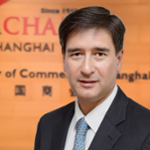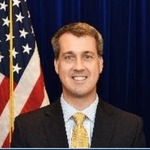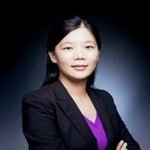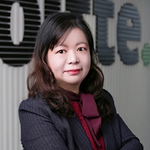- Registration and Check-in
- Opening Remarks
Ker Gibbs - Update on US visa and recommendation to US enterprises
Jeff Graham - CEO Chat
Michael Chen•Ker Gibbs - Global Mobility & Employment Accelerating the Transformation and Digitalization of Human Resources for Workforce 4.0
Elley Cao - Coffee Break
- Asia Pacific Region : Global Mobility in the New Normal
Sandi Huynh•Donna Mufida•Benny Tan•Christina KarlAs the world moves into the “new normal,” global companies are forced to rethink their global strategies around their workforce deployment. This led to innovative solutions by many companies in dealing with the business needs of talent management and deployment.
In this session, we will explore some of these innovative solutions and measures that companies have taken to deal with constraints imposed by the pandemic as well as their effectiveness. We will also discuss what this “new normal” could look like even as the pandemic subsides, especially its lasting impact on global mobility strategies.
Sandi Huynh from Uber, Christina Karl from Deloitte and Benny Tan from Altair Global will share their perspectives on current and possible future trends for global mobility in the Asia Pacific region. - Lunch & Networking at Exhibition area
- Mobility’s added value on expat’s experience during COVID19
Claire Yao•Damien Schrobiltgen - Latest updates on PRC immigration, individual income tax and broader global mobility trends
Irene Yu•Cecille Yang•Kevin ZhuLatest updates on PRC immigration, PRC individual income tax and broader global mobility trends
2020 has been a remarkable year. COVID-19 has significantly changed the world and there is a tremendous revolution in the business and talent landscape as a result of how governments and the public have reacted to the pandemic. Legislation is changing, governance is strengthening and business is evolving. In this panel session, the Deloitte partners will share the latest updates on PRC immigration, PRC individual income tax ("IIT") and broader global mobility trends. Specifically, this panel session will cover the following topics:
• Post-reform PRC IIT impact and compensation strategies
• Talent Incentive Programs across China (Tianjin, Shanghai, Great Bay Area, Hainan)
• Latest immigration trends/updates in China
• COVID-19: immigration, tax and broader global mobility impacts - The future of remote work: technical and practical considerations
Theresa Chan•Bruce Lee•Greg MorleyGlobal employers are planning or even implementing remote working arrangement policies to adapt to the changing needs of their workforces. Certain employees may not return to their offices as local lockdown restrictions or social distancing measures remain in place. Travel restrictions may also limit the cross-border movement of globally-mobile talents.
Successful execution of a remote working arrangement often requires profound support from senior management, detailed strategies in designing and communicating the policies, and technology-enabled infrastructures. Also, both employers and employees should consider individual tax, immigration, social security, and other implications when designing policies on remote working arrangements.
In this session, Greg Morley from Moet Hennessy in Singapore and Theresa Chan and Bruce Lee from PwC Global Mobility Services in Hong Kong will lead a virtual panel to share their insights on the following topics:
1. Highlights from recent PwC global survey on remote working arrangements;
2. Hong Kong salary tax, immigration and other global mobility related implications on remote working arrangements;
3. Sharing of practical experience in addressing the aforementioned implications. - Coffee Break
- How to develop a mutually beneficial work relationship
Silvia Gong•Richard Ma•Ivan Shen•Sally XuGlobal mobility professionals are agile at developing policies and various practices to support their business, achieve goals, and generate revenue. To reach this purpose, they need to identify the latest changes and policies implemented at home and abroad, and what their competitors are doing in the market. Fortunately, service providers are always there to seek these shared purposes and value the work of GM professionals between organizations and individuals. Service providers can also provide their insights and resources to work with in-house GM professionals to ensure successful international assignments. At the outbreak of an epidemic, they should work together seamlessly to predict trends, manage changes, and solve problems.
In this session, we will have in-house HR as well as service providers to discuss current issues, benchmark various drivers and indicators, share insights and trends, and provide best practices. - Global Mobility Clinic
What is the Global Mobility Clinic?
The Global Mobility Clinic will offer attendees the chance to informally talk with a variety of service providers and global mobility professionals. Attendees can seek expert advice on a range of issues, including the latest benchmarking information, relocation materials and survey data.
Table 1 – Labor Law, Immigration & Tax by Baker & McKenzie | Zheng LU, Zora MAO, and Luis ZHANG
Table 2 – Education in a Post-COVID World | Silvia Gong, GM & Eric Mouton, Shanghai American School
Table 3 – Shipping Hacks, Tips for a Smooth Transition | Michael Hughes & Christian Sim, ARPIN International Group
Table 4 – Mobility is Risk, Talent, and Digital | Michelle Zhou, KPMG
Table 5 - How to solve your overseas HR outsourcing processes? | Govern Tang, BIPO
Table 6 - Solutions for families with special education needs | Andrew Hill, Founder, Director, ELG
Table 7 - Practical Payroll Management | Sarah Gu, Ivy Ding, TMF Group - End of Conference



















